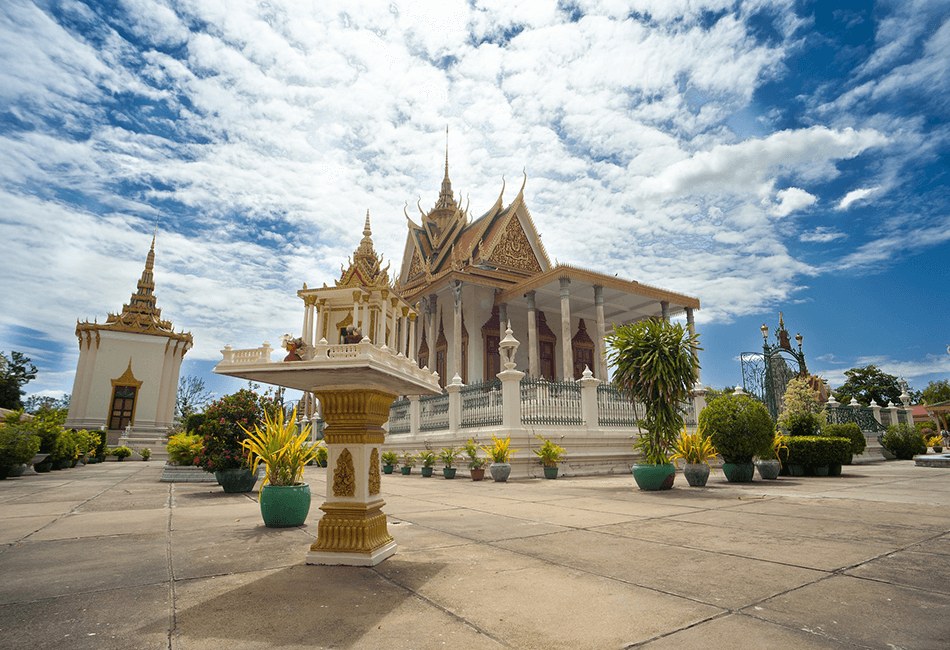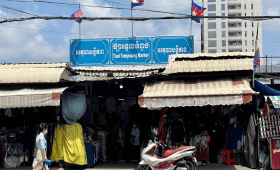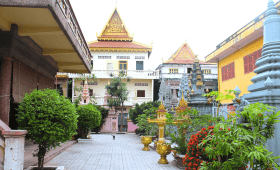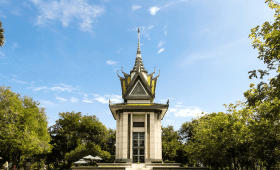If you’re planning a visit to Phnom Penh, Cambodia, a must-see attraction is the renowned Silver Pagoda. Situated within the magnificent compound of the Royal Palace, this cultural treasure trove offers an awe-inspiring glimpse into Cambodia’s rich history and heritage. From its fascinating origins to its opulent interiors, the Silver Pagoda is a true testament to the country’s elegance, spirituality, and craftsmanship.
History Silver Pagoda
The Silver Pagoda, also known as Wat Preah Keo Morakot, was originally built in the 19th century to house Cambodia’s sacred Buddha statues and religious artifacts. Its construction was commissioned by King Norodom, and it served as a place of worship for the royal family and the highest levels of Cambodian society.
In the Royal Palace: A Jewel within a Jewel
Nested within the grounds of the Royal Palace, the Silver Pagoda truly stands out as a jewel within a jewel. It is surrounded by lush gardens and intricate architectural masterpieces, reflecting the grandeur and refinement of traditional Khmer design. From the moment you step foot through its ornate gates, you will be transported to a world of splendor and elegance.
Phnom Penh’s Cultural Gem: What to Expect
Walking through the Pagoda’s Gates
As you enter the Silver Pagoda, you will be greeted by a mesmerizing sight. The floor beneath your feet is adorned with thousands of silver tiles, hence the name “Silver Pagoda.” Each tile glistens in the sunlight, creating a radiant display that showcases the exquisite craftsmanship of Cambodian artisans.
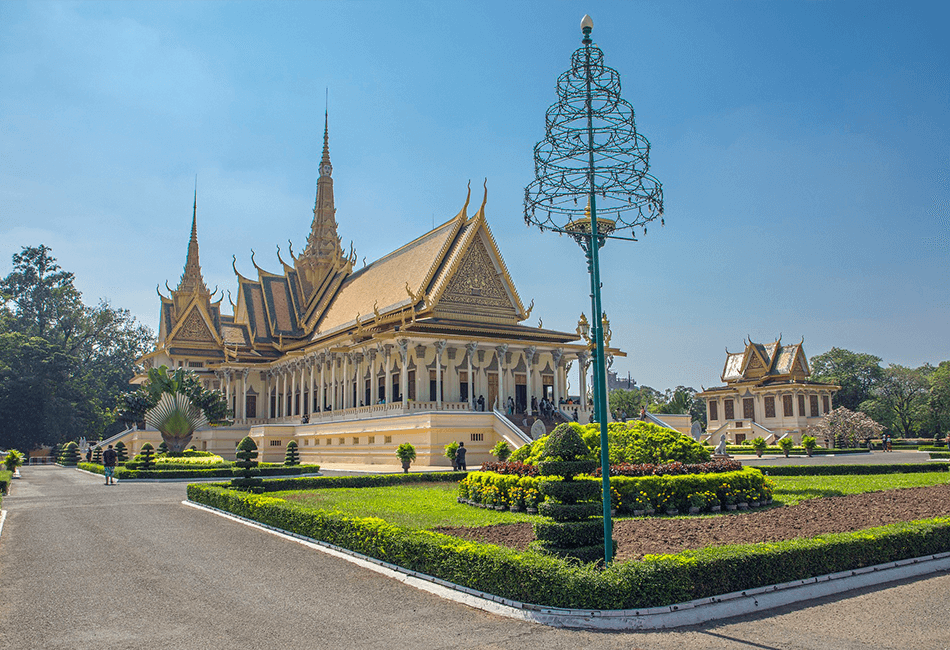
The Emerald Buddha: A Centerpiece of Devotion
At the heart of the Silver Pagoda sits the prized Emerald Buddha statue, known as the “Preah Keo,” from which the pagoda gets its alternative name. Carved from a single piece of jade, this magnificent statue is adorned with over 9,000 diamonds and precious gems. It is considered one of the most sacred and venerated religious relics in Cambodia.
The Offering of the Garuda
Another highlight of the Silver Pagoda is the Garuda, a mythical creature in Hindu and Buddhist mythology. The garuda is a half-human, half-eagle figure, serving as a protector and mount to the gods. Within the pagoda, you can witness a large gilded statue of the Garuda, intricately crafted and standing as a symbol of benevolent power and divine protection.
Unraveling the Rich Tapestry of Cambodia’s Heritage
A visit to the Silver Pagoda is not just an architectural journey; it is an opportunity to explore the country’s captivating history and cultural heritage. The walls of the pagoda are adorned with intricate murals depicting mythological stories and the trials and triumphs of Cambodia’s past. These masterpieces serve as a fascinating storytelling medium and a gateway to understanding the country’s rich tapestry of art, religion, and tradition.
Preservation and Restoration: Safeguarding Cambodia’s Legacy
The preservation and restoration of the Silver Pagoda is a testament to Cambodia’s commitment to safeguarding its cultural heritage. Despite facing turbulent times in its history, many efforts have been made to ensure that this architectural gem remains intact for future generations. Through meticulous restoration work and ongoing maintenance, the Silver Pagoda continues to shine brightly as a symbol of Cambodia’s enduring spirit.
Conclusion
From its humble beginnings as a place of worship for Cambodia’s royal family to its current status as a captivating cultural attraction, the Silver Pagoda encapsulates the essence of Cambodia’s history, spirituality, and artistic brilliance. A visit to this gleaming treasure within the Royal Palace in Phnom Penh is an experience like no other. As you walk through its hallowed halls and gaze upon its majestic displays, you will be transported to a world of wonder and enchantment, leaving with cherished memories and a deeper appreciation for the vibrant heritage of Cambodia.


